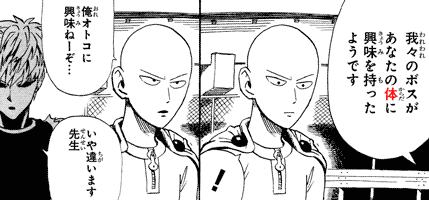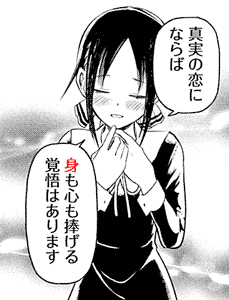There are various ways to say "body" in Japanese. A physical body is karada 体, or karada 身体, but the word mi 身 is used in some cases. The morpheme tai 体 is used to refer to aspects of the body. And words like nobody, somebody, anybody, everybody are formed with dare 誰 plus some particle.
This article is about the word for whole "body." See Names of Body Parts in Japanese for a list of terms for specific parts.
体 vs. 身
The difference between karada 体 and mi 身 is that karada is the "body" in the physical, anatomical sense, while mi is the "body" in the individual sense, psychological snese, and the social sense, like in one's social position.
karada 体
For example, a character that's a spirit capable of possessing people's bodies could complain about the physical body he just possessed by saying:
- kono karada
この体
This body.- Is too weak. I need to possess a stronger body in other to defeat that guy.
Or maybe someone is talking about the physical properties of the body:
- karada wa tsurugi de dekiteiru
体は剣で出来ている
The body is made of swords.- a.k.a. "I'm the bone of my sword."
Or maybe it's part of a joke like this:
- Context: a caped baldy with extreme strength is targeted by an evil organization. He interrogates one the bad guys concerning why they're after him.
- {wareware no bosu ga
anata no karada ni
kyoumi wo motta}
you desu
我々のボスがあなたの体に興味を持ったようです
It seems {our boss had interest in your body}. - !
- ore, otoko ni kyoumi nee zo...
俺オトコに興味ねーぞ・・・
I don't have interest in men... - iya, chigaimasu, sensei
いや違います先生
No, [you got it wrong], master.- They aren't "interested" as in "attracted," they are "interested" in why he's so physically powerful.
mi 身
The word mi 身 means "body" in the philosophical sense, rather than in the anatomical sense. A more literal translation of mi 身 would be one's own "self." Sometimes, this can mean one's social position, other times, it's one mind, and other times, one's body in the sense of everything you have. It really varies. For example:
- mi wo motte shiru
身をもって知る
To know by [one's] body.
To experience by [oneself].- In this case, mi doesn't refer to your flesh, but you as an individual.
- What this phrase means is that you don't know something because someone else told you, you know because you learned from experiencing it yourself, with your own body.
- mi ni shimiru
身に染みる
To permeate [one's] body.
To feel [something] deeply.- In this case, it's psychological.
- Obviously, when you feel something, you feel with your physical, flesh-y senses. But because feeling things is a psychological thing, mi 身 is used instead in a number of set phrases.
- mi no hodo shirazu
身の程知らず
Unknowing the limits of [one's] body.
Not knowing [one's] place.- In anime, this phrase is often used when you have a character that's nobility or royalty telling some lower-caste character: "know your place."
- That is, mi, here, refers to one's social position. The "limits of the body" refers to their reach: what they can and can't do. Trying to do something beyond what they're supposed to do means they don't know their limits, they don't know their place.
- shinjitsu no koi ni naraba
真実の恋にならば
If [it] is true love, - mi mo kokoro mo sasageru kakugo wa arimasu
見も心も捧げる覚悟はあります
[I] have the resolve to offer [my] body and soul.
The kanji of mi 身 can also be read as shin 身.
- bunshin
分身
"Division of the body."- In anime, often used like:
- kage bunshin no jutsu
影分身の術
Shadow clone technique.
- bunshin
文身
"Literature of the body."- Old term for "tattoo," irezumi 入れ墨.
体 vs. 身体
There's a few differences between karada 体 and karada 身体, but it's mostly nuance and both words mean basically the same thing.
The first and most clear-cut difference is that karada 体 is a normal reading, while karada 身体 is a gikun reading.
Officially, it's supposed to be read as shintai 身体 instead:
- shintai nouryoku
身体能力
Physical abilities.
More specifically, it's a matter of which readings are part of the school curriculum, which ones are jouyou kanji 常用漢字.
- mi 身 (yes.)
- karada 体 (yes.)
- shintai 身体 (yes.)
- karada 身体 (no.)
In Japan, there's a number of official documents that must be written only with jouyou kanji. This means that, in any of such documents, 身体 is never read as karada, it's always read as shintai, and karada is always written karada 体.
So why do people write it as karada 身体 instead if it's not even an official reading?
To add the nuance of mi 身 to the word. The nuance of one's social position, of one's psyche. For example:
- karada wo taisetsu ni suru
体を大切にする
To take care of [your] body.- Because you have a promising super-model celebrity idol actress career, so your body is your greatest asset.
- karada wo taisetsu ni suru
身体を大切にする
To take care of [your] body [and mind].- Because getting sick, physically or psychologically, is bad for you.
In particular, the bodies of animals are not referred to as karada 身体, because animals are presumed to not to have emotions, at least not emotions as complex as humans, so they don't have a mi 身. They don't even live in a society. We live in a society. So you only use karada 身体 toward humans.
But with this it sounds like referring to a person's body as just karada 体 puts their body on the same level as an animal's body. So people may use karada 身体 as a way to cautiously avoid that implication. As a way to avoid sounding impolite.
Of course, this is completely unnecessary, and a lot of people will ignore it, don't mind it, or just use either spelling interchangeably.
tai 体
There's a number of words related to the body that have the kanji for body, karada 体, but as the morpheme tai 体 instead. For example:
- taichou
体長
Height. Body length.- nagai
長い
Long.
- nagai
- taijuu
体重
Body weight.- One's own weight.
- omoi
重い
Heavy. - futoru
太る
To get fat. - yaseru
痩せる
To lose weight.
- taikei
体型
Body shape- kata
型
Model. Type.
- kata
- taion
体温
Body temperature.- atatakai
温かい
Warm.
- atatakai
- taiiku
体育
Physical exercise.- sodatsu
育つ
To raise. To up-bring.
- sodatsu
- taichou
体調
"Body tune."
Often used as:- taichou ga warui
体調が悪い
"Body tune" is bad.
My body feels bad.
I'm not feeling well, so I won't go to school today, or I'll go to the infirmary.
- taichou ga warui
- taiken
体験
Body experience.- Experiencing something by yourself, with your own body.
- hatsutaiken
初体験
First experience. (often about virginity.) - shotaiken
初体験
When tai 体 comes after something, it's generally a "body" qualified by the morpheme before it, just like as if it were an adjective.
- jintai
人体
Human body- hito
人
Person. - hito no karada
人の体
The body of a person.
- hito
- nikutai
肉体
Meta body. Flesh.- niku
肉
Meat. - nikutai kaizou-bu
肉体改造部
Body improvement club. (from Mob Psycho 100.)
- niku
- reitai
霊体
Spiritual body.- yuurei
幽霊
Ghost.
- yuurei
- shitai
死体
Dead body. Corpse.- shinu
死ぬ
To die.
- shinu
- hontai
本体
Real body.- In anime, it refers to the bad guy controlling the long-range puppets from afar. No matter how many of the puppets you defeat, the fight won't end until you defeat the hontai.
- E.g. in JoJo, don't attack the STAND (the enemy's ability), attack the hontai (the enemy himself.)
- nyotai
女体
Female body.- nyotaika
女体化
Female-body-fication. When a character turns into a girl in anime.
- nyotaika
Body Sides
There's a number of words that refer to the sides of the body, using morphemes for directions. For example:
- tainai
体内
Inside of the body. - taigai
体外
Outside of the body. - jouhanshin
上半身
Upper-half of the body. - kahanshin
下半身
Lower-half of the body. - joutai
上体
Upper body. - katai
下体
Lower body.
Nobody, Anybody, Somebody, Everybody
In English, we have the words nobody, anybody, somebody, and everybody which all end in "body," so I guess I might as well include them in this article too.
Japanese doesn't have those words.
Instead, in Japanese using the word dare 誰, "who," plus the particle mo も, which can work as an intensifier, or ka か, which means doubt, or the particles demo でも, meaning "even," plus a negative verb or not, can be interpreted as the words nobody, anybody, somebody, and everybody.
- dare
誰
Who. - dare ka
誰か
Somebody.- I don't know "who" but somebody is there.
- dare demo
誰でも
Anybody.- Even a "who."
- No matter "who" it is.
- Often "anybody" also means "everybody."
- Note that minna みんな means "everybody" but it doesn't mean "anybody."
- dare mo... nai
誰も〇〇ない
Not... anybody.
Nobody.- Not even a "who."
For example:
- dare ga dekiru?
誰ができる?
Who can do it? - dare ka ga dekiru
誰かができる
Somebody can do it. - dare ka dekiru
誰かできる - dare demo dekiru
誰でもできる
Anybody can do it.
Everybody can do it. - dare mo dekinai
誰もできない
Nobody can do it.
Some other examples:
- dare mo shiranai
誰も知らない
"dare mo" doesn't know.
Nobody knows. - dare mo inai
誰もいない
"dare mo" isn't here.
Nobody is here. - dare ka tasukete
誰か助けて
Somebody help [me]!
An example with minna みんな.
- minna shinda
みんな死んだ
All died.
Everybody died.
Even the word hito 人, "person," can be interpreted as "someone" which leads to it becoming "somebody."
- shinrai dekiru hito
信頼できる人
A person [whom] [you] are able to trust.
Someone [whom] [you] can trust.
Somebody [you] can trust.
References
- 「体」と「身体」の違い - chigai-allguide.com, accessed 2019-04-06.


No comments: